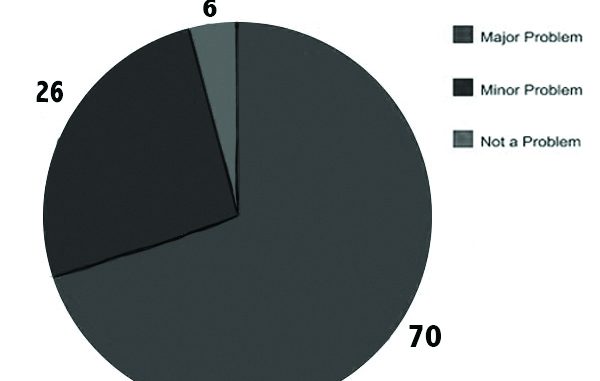
Written by Yessica Banda, Staff Writer

Many Indian Trail High School & Academy students are familiar with someone who has struggled with mental illness. From depression to schizophrenia, teens have encountered it in their friends and families.
“I think mental illness is a very serious thing,” said a Communications junior, who battles depression. “Some- times it’s not taken as seriously as it should be. With a generation that makes constant jokes and memes of “wanting to die,” we all joke a lot to the point where we are numb to the truth.”
A lot of teens struggle to express how they feel, but when telling their friends it tends to get laughed off, she said.
“I believe a spotlight should be put on it, that getting help is okay for anyone. It is not weak to admit you are not okay,” she said.
Stigma plays a part in how teens react and address mental health.
“I think it does because a lot of times people are more sympathetic towards women that have it and not as much with men because they are not known to be emotional creatures,” said Emily Nicke, a Communications senior.
According to Health.org, stigma is a mark of disgrace that sets a person apart from others. When a person is labeled by their illness, they are no longer seen as an individual but as part of a stereotyped group. Negative attitudes and beliefs toward this group create prejudice which leads to negative actions and discrimination.
When asked to provide their own definition of mental illness, teens from all grade levels said it was when you were feeling sad. Another described being numb to everything and not wanting to do anything. But professionals offer a much more complex definition.
“Mental illnesses are brain disorders that are biologically based on medical problems. Untreated, they can cause severe disturbances in thinking, feeling and relating,” according to the National Alliance on Mental Illness, a professional organization that provides advocacy, education, support, and public awareness to help those suffering from mental illness and their families.
Mental illness results in a substantially diminished capacity for dealing with the ordinary demands of life. It can affect people of any age and occur in any family. They are not caused by bad parenting and not evidence of the weakness of character, NAMI’s website notes.
According to a 2019 study by the Pew Research Center, 70 percent of teens think anxiety and depression are a major problem in the United States. About 26 percent think it’s a major problem, and 4 percent think it’s not a problem.
“It’s a very serious problem that should always be addressed even if a person seems like they’re kidding. I feel there should be more done to help students deal with all of their problems,” added Sarah, a Med-Sci Academy senior.
Some teens say they listen to music to cope with their grief, while others talk with a close friend or relative. Although, a few say they have nobody to turn to and just shut down, trying to do something to distract themselves.
“I feel like I have someone to speak to, but I don’t think I’ve been understood,” said Monica Arizmendi, a Business Academy sophomore.
A Communications junior who battles depression said how she has called a suicide prevention hotline three times before getting an answer, and then the person on the phone did not help, did not give her good advice and sounded uninterested.
“I feel all friends need to check on each other, kids need to feel safe telling parents or an adult about their problems without fear of it being spread everywhere, to feel comfortable. In order to avoid these dangerous situations,” said the junior.
On average, one person in Wisconsin dies by suicide every nine hours in the state. It is the second leading cause
of death in the state among teens ages 15 and up. “Suicide isn’t ever the correct answer to a problem. Suicide and self-harm will only worsen a situation. The best means of action is trying to nd peace within your- self,” said Alejandro Comstock, a Communications Academy junior.
“There can be points in life where you feel overwhelmed and trapped and that can seem like the only way out, but there will always be a light at the end and suicide should never be the answer,” said Luke Ianson, another IT junior.
“I feel that there are so many ways it can be prevented,” Nicke said. “We should be reaching out a lot more and making sure our kids are okay, because they are our future generation and things aren’t the way they used to be. There’s so much more going on in the world that affects our mental stability.”
